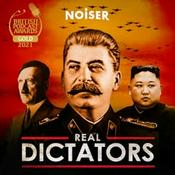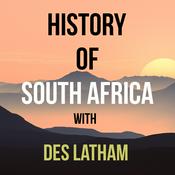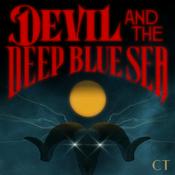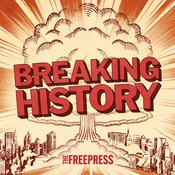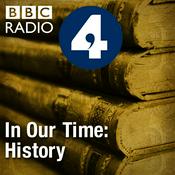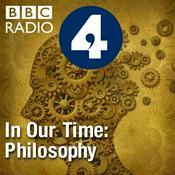226 episodes

International Tribune of Indigenous Peoples and Oppressed Nations in The USA - USA On Trial (1992)
2025/10/30 | 1h 3 mins.
1992 International Tribunal of Indigenous Peoples and Oppressed Nations in the USA, held in San Francisco as part of the Quincentennial 500 years of Resistance. As always, edited by Ian Anderson (@starsalwayslost), with special thanks / credit to Sina Rahmani + The East is a Podcast. Our Twitter presence is @AntiImpArchive, and if you would like to reach out directly we have an email address at: [email protected]

Mark Cook - Burning Books Lecture (2021)
2025/10/27 | 1h 12 mins.
This week, we're airing a presentation by Mark Cook from Burning Books bookstore in Buffalo, NY. This was recorded on February 18th, 2016. From the announcement on Kersplebedeb.com for the event: "Mark Cook is a former Black Panther, member of the George Jackson Brigade, and political prisoner. Twenty four years in prison could not break his spirit or commitment to Black liberation and Mark Cook is as active an organizer now as ever. These events will be worth traveling for, as Cook will only be speaking on these two dates while on the east coast, before heading back to the Pacific Northwest" As usual, we invite listeners to check out the slightly longer podcast version online for free. To hear the questions and answers from the end of the presentation, you can check out the podcast. You can find more presentations from Burning Books plus audio from Mark presenting at the 2015 North American Anarchist Black Cross Conference in Denver, CO (pt 1, pt 2) at our website and find more and longer videos of the presentations on youtube. You can learn more about the bookstore venue, including books about the George Jackson Bridge at BurningBooksBuffalo.com. Jalil Muntaqim It's notable that at the start of this Jalil Muntaqim is mentioned being visited in prison. Last week, he was announced that Jalil will be released on parole after 50 years! Congrats to him! Free Them All! As always, edited by Ian Anderson (@starsalwayslost), with special thanks / credit to Sina Rahmani + The East is a Podcast. Our Twitter presence is @AntiImpArchive, and if you would like to reach out directly we have an email address at: [email protected]

Nawal El-Saadawi - Walking Through Fire (2020)
2025/10/23 | 40 mins.
Author Nawal Saadawi has written over 50 books and has been translated into more than 32 languages. She is a novelist, human activist and social reformer. More than any other figure in modern-day times, she has continued to influence generations for the past 50 years. She is a medical doctor by profession and started writing about her clinical cases in order to educate men and women about gender. This talk examines the impact of Nawal's work and the benefit her work has to students, faculty and outside guests. Nawal El Saadawi, Egyptian Feminist Writer, Activist, Physician and Psychiatrist In conversation with Omnia Amin, Senior Humanities Research Fellow, NYUAD As always, edited by Ian Anderson (@starsalwayslost), with special thanks / credit to Sina Rahmani + The East is a Podcast. Our Twitter presence is @AntiImpArchive, and if you would like to reach out directly we have an email address at: [email protected]

Gene Sharp - Interview on War (1987)
2025/10/20 | 56 mins.
Official Film website https://www.howtostartarevolution.org Watch feature length Gene Sharp documentary http://vimeo.com/ondemand/4878 As always, edited by Ian Anderson (@starsalwayslost), with special thanks / credit to Sina Rahmani + The East is a Podcast. Our Twitter presence is @AntiImpArchive, and if you would like to reach out directly we have an email address at: [email protected]

Farid Esack - Apartheid South Africa and Israel Today, Parallels (2007)
2025/10/16 | 51 mins.
Apartheid South Africa and Israel Today: The Parallels with PROFESSOR FARID ESACK Prof. Esack is a South African Muslim theologian, currently a visiting professor at Harvard Divinity School. He has taught at several universities, including Union Theological Seminary in New York. As always, edited by Ian Anderson (@starsalwayslost), with special thanks / credit to Sina Rahmani + The East is a Podcast. Our Twitter presence is @AntiImpArchive, and if you would like to reach out directly we have an email address at: [email protected]
More History podcasts
Trending History podcasts
About The Anti-Imperialist Archive
Listen to The Anti-Imperialist Archive, Short History Of... and many other podcasts from around the world with the radio.net app
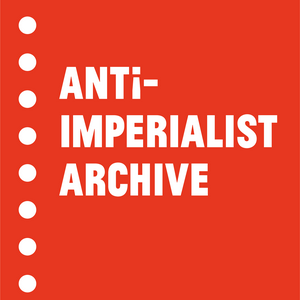
Get the free radio.net app
- Stations and podcasts to bookmark
- Stream via Wi-Fi or Bluetooth
- Supports Carplay & Android Auto
- Many other app features
Get the free radio.net app
- Stations and podcasts to bookmark
- Stream via Wi-Fi or Bluetooth
- Supports Carplay & Android Auto
- Many other app features


The Anti-Imperialist Archive
download the app,
start listening.


